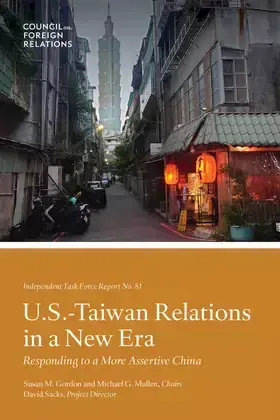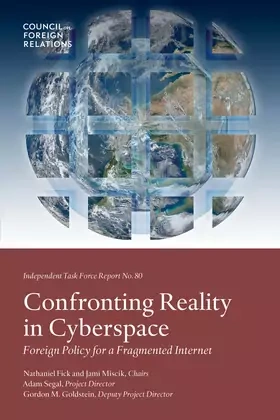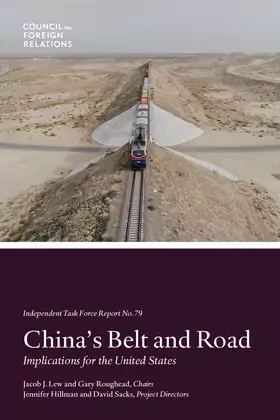Task Force Program
Recent Task Force Reports

U.S.-Taiwan Relations in a New Era
Although a conflict in the Taiwan Strait has thus far been avoided, deterrence has dangerously eroded. To maintain peace, the United States must restore balance to a situation that has been allowed to tilt far too much in China’s favor.

Confronting Reality in Cyberspace
The early advantages the United States held in cyberspace have largely disappeared as the internet has become more fragmented, less free, and more dangerous. The United States needs a new foreign policy for cyberspace to secure its economic and security interests.

China’s Belt and Road Initiative
China’s globe-spanning Belt and Road Initiative poses risks to participating countries and challenges to U.S. interests abroad. The United States should coordinate with partners to promote a secure and sustainable development agenda of its own.
CFR has launched a Task Force on Space Management Policy, chaired by retired Lieutenant General Nina Armagno, USSF, and former Congresswoman Jane Harman. Esther Brimmer, CFR’s James H. Binger senior fellow in global governance, serves as project director. Composed of thirty-five experts, the Task Force is examining challenges in low Earth orbit and beyond, places where the acceleration in human activity is most evident, in a time of heightened geopolitical and commercial competition. The Task Force aims to produce a consensus report in late 2024 that offers findings and recommendations that can help frame the future of the space economy, national security, and the sustainable use of the space domain.
-
The Palestinian Authority (PA) must improve its ability to govern democratically and effectively—and do so urgently—or risk losing the support of its people, according to this independent Task Force …
-
During the Cold War Northeastern Europe was a strategic backwater and received relatively little attention in U.S. policy. However, since the end of the Cold War, the region has become an important f…
-
Notable opportunities exist for the U.S.-European relationship to help mold the twenty-first century’s international system. Despite the absence of the Soviet threat, the two sides of the Atlantic co…
-
Having contained Cuban support for revolution in Latin America and perceiving signs of strong stirrings of a new civil society in Cuba, the United States should take steps to “contribute to rapid, pe…
-
The spring 1998 Indian and Pakistani nuclear tests made South Asia and the world a more dangerous place, says this independent Task Force report. It recommends that the immediate objectives of U.S. f…
-
The Korean peninsula remains one of the most heavily armed and dangerous places in the world. Despite its deteriorating economy, North Korea retains a standing army of over one million men and an eno…
-
In 1997, Washington paid unprecedented attention to Africa and its continental rebirth. Both then-First Lady Hillary Clinton and then-Secretary of State Madeleine Albright toured the continent. Presi…
-
The collapse of confidence between Israelis and Palestinians over the past year and the ability of opponents of peace on both sides to exploit incremental measures to their advantage have brought the…
 Online Store
Online Store











